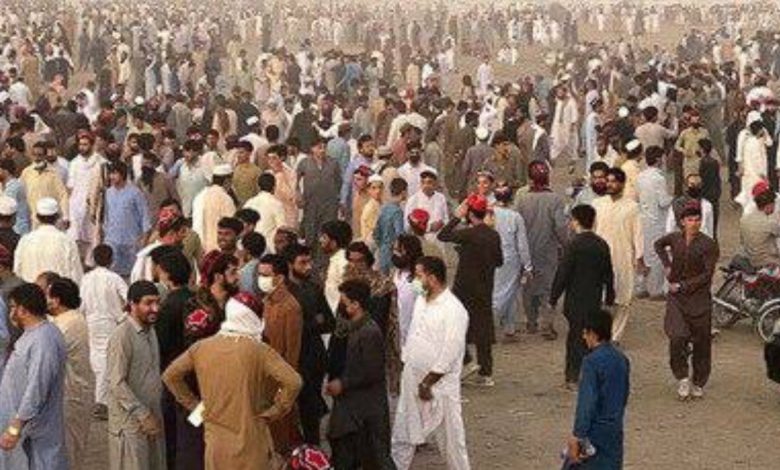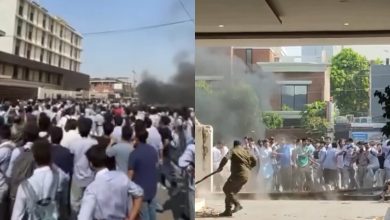PTM jirga urges military and Taliban to exit Pashtun regions

The Pashtun Tahafuz Movement (PTM) concluded its three-day national jirga in Khyber District, Khyber Pakhtunkhwa, issuing a stern ultimatum to both the Pakistani military and Taliban forces.
The jirga, comprising tribal elders and leaders, declared a 60-day deadline for the army and Taliban to vacate Pashtun territories, warning that their continued presence would no longer be tolerated.
Along with this, the jirga announced the formation of a national militia and proposed the revival of unrestricted trade across the Afghan border.
The event was attended by prominent political figures, including Khyber Pakhtunkhwa Chief Minister Ali Amin Gandapur and Governor Faisal Karim Kundi, who addressed a large crowd gathered for the jirga.
Their speeches were met with enthusiastic responses from the attendees, with many voicing support for the calls to address long-standing issues of security, governance, and economic development in the region.
Manzoor Pashteen, leader of the PTM, outlined the movement’s key demands during the jirga, emphasizing the need for urgent action to address the challenges facing the Pashtun people.
Central to these demands was the deadline for the military and Taliban to leave Pashtun lands, a move Pashteen described as necessary to restore peace and security in the region. In addition to the eviction of military forces, the jirga proposed the restoration of free trade along the Durand Line, which divides Pakistan and Afghanistan.
Pashteen called for the removal of gates and customs offices, advocating for a return to the open-border trade policies that existed during the British colonial era.
He stressed that such measures would enhance economic ties with Afghanistan and improve the livelihoods of people living in border areas.
The jirga also called for the promotion of women’s education, urging the Afghan government to ensure that women are granted the right to pursue education. This appeal reflects the PTM’s broader stance on social reform and gender equality, which has been a consistent theme in its agenda.
Perhaps the most striking announcement was the formation of a national militia, which Pashteen said would be composed of 244,000 individuals from various districts. Each district is expected to contribute 30,000 people to this force, which would serve as a protective entity for the Pashtun community.
The jirga emphasized that this militia would operate with the collective support of the Pashtun tribes and would focus on ensuring the security and autonomy of their lands.
The jirga also took a firm stance on the issue of extortion, declaring that Pashtuns would no longer pay extortion money to any group, including the military, Taliban, or other entities. This reflects a growing frustration with the financial pressures placed on local communities by both state and non-state actors.
In a controversial move, Pashteen called for the army, ISI, and both factions of the Taliban to be declared terrorist organizations. This demand is likely to provoke a strong reaction from the Pakistani state, as it challenges the legitimacy of key national security institutions.
The jirga concluded with a commitment to addressing land disputes within Pashtun tribes through traditional dispute resolution mechanisms. Pashteen stressed the importance of resolving these issues through local customs, without the involvement of external forces.
While the jirga ended peacefully, the bold demands made by PTM are expected to face significant resistance from the government. Analysts believe that the next steps taken by both the state and PTM will be critical in shaping the future of the Pashtun region, where security concerns and socio-economic grievances remain acute.
How the government responds to these demands will likely determine whether the region sees an escalation of tensions or moves towards meaningful dialogue and reform.



